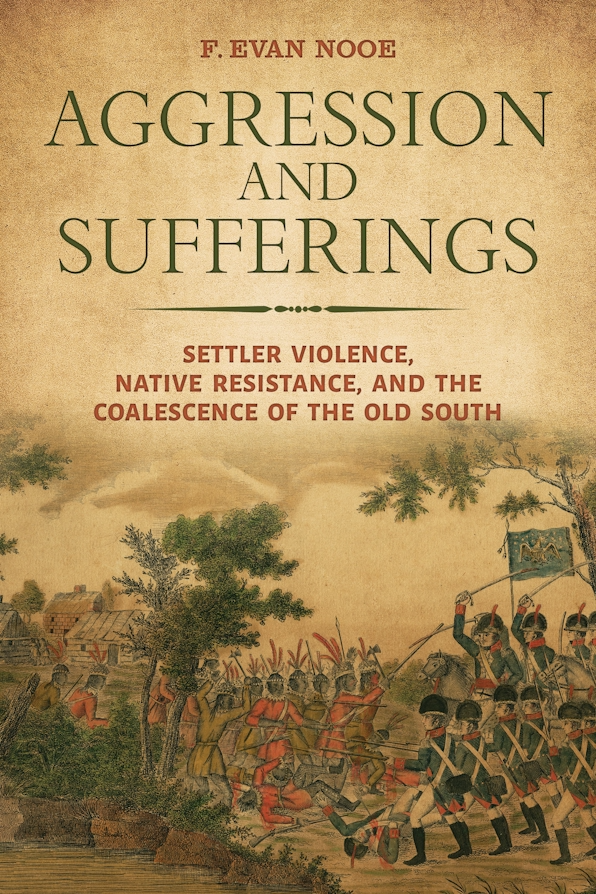The Department of History and Geography is proud to announce that Dr. Evan Nooe, who earned his M.A. in History from Clemson, has won the Francis B. Simkins Award from the Southern Historical Association. The award recognizes his book Aggression and Sufferings: Settler Violence, Native Resistance, and the Coalescence of the Old South, published by the University of Alabama Press.
The Simkins Award is one of the most prestigious honors in the field of southern history, recognizing the best first book published in the field over a two-year period. Nooe’s book examines the interactions between white settlers and Indigenous peoples in the early South.
Focusing on South Carolina, Florida, Tennessee, Georgia, and Alabama, the book explores how different systems of justice and violence functioned in the region during the colonial and early national periods. Nooe examines how white southerners remembered and narrated these interactions, and how these narratives influenced the development of regional identity in the antebellum period and beyond.
After completing his M.A. at Clemson, Nooe went on to earn his Ph.D. at the University of Mississippi. He is currently an Assistant Professor of History at the University of South Carolina Lancaster, where he continues his research on early southern history and Indigenous histories.
The Department of History and Geography congratulates Dr. Nooe on this well-deserved recognition.








